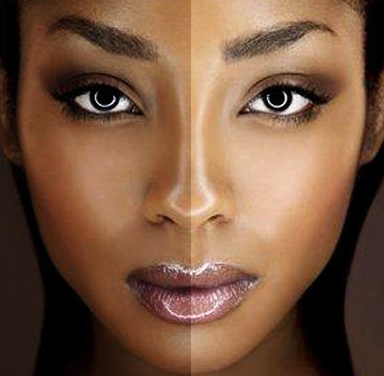
Writing for Aquila Style, writer Fatimah Jackson-Best explores the complicated issue of ‘shadeism’, commonly known as ‘colorism’ in the Muslim Diaspora. Jackson-Best questions why women help to perpetuate discrimination based on complexion through their product choices (skin lightening creams). In the United States, colorism is also rampant to such an extent that people are lightening, darkening and even turning themselves orange in pursuit of a desirable skin hue. Check out Jackson-Best’s commentary on the subject as it relates to the Muslim world. – NKB
EXCERPT
“I remember being one of a few Black Muslims of Caribbean-descent at my Islamic school, and knowing that I was different from my Southeast Asian and Arab peers. From the foods we ate at home to the way we spoke, our realities were not the same.
Beyond cultural and ethnic differences, I also realised that students who shared the same colour as me were not exactly like me either. Even though we all had variations of brown skin, the Sudanese, Somali and Kenyan boys and girls at my school came from cultures that were different from mine.
As I grew older, I began to hear about other things. People talked about how the shade of your skin was a marker of beauty, and that a woman who was very dark did not have the same kind of attractiveness as a woman with a lighter complexion. As an adult, I came to understand that this was called skin complexion discrimination or a term that has become more popular recently: shadeism. Both terms describe how light skin may be favoured over darker hues and those with fairer complexions are seen to be more beautiful and desirable. I also learned that this wasn’t a phenomenon specific only to Black people, but an issue that many face around the world…”
END OF EXCERPT
Do you think that colorism has gotten better or worse in this century? Share your comments with The Burton Wire in the comments section below.
Read Jackson-Best’s article in its entirety at Aquila-Style.
Like The Burton Wire on Facebook. Follow us on Twitter @TheBurtonWire.







